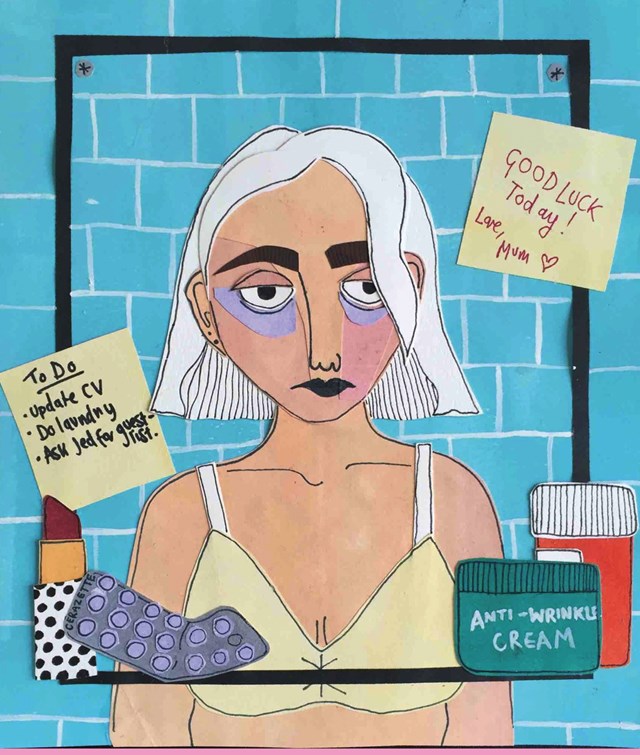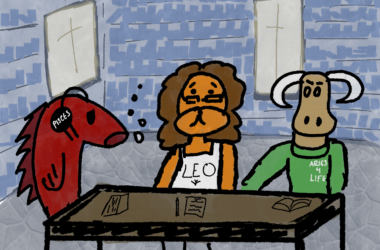The average person in Canada is a quarter of the way through their life by age 22—a third by 27. The quantification of life brings the future out of lofty abstraction and into pressing reality. As much as this induces anxiety about how one will use their remaining years of life, it also calls into question how one has spent them so far.
For many university students, arrival at the quarter-life mark drums up feelings of emptiness as they recall the habits and activities that used to seem integral to their personalities. In retrospect, life seems merely to be a series of unfinished projects. Many students enter into the quarter-life crisis captivated by nostalgia for youthful optimism, to reclaim their previous ambitions since put on hold by university and other pressing matters of adulthood.
The idea of going off to university is sold to North American youth as a commodity to be bought and experienced. Many students find this university experience to be underwhelming and feel a pervasive sense of dissatisfaction, which often snowballs into personal crisis. Upon coming to McGill, Charlie Zaininger, U2 Arts, found herself reassessing her goals as she became disconnected from normal life.
“Growing up in Princeton, New Jersey, I could get drunk and smoke cigarettes but there was never that much trouble to get into,” Zaininger said. “When I came to McGill, there was just so much opportunity to have fun. After a particularly rowdy week in second year, I realized that I needed to reassess [….] I had become irresponsible […..] I largely forgot about my photography and writing [.…] Something about being in a bigger pool of people makes your contributions seem less valuable.”
One goes to university expecting to discover their purpose and self-fulfillment, but is instead inundated by distractions. The anxiety that Zaininger felt in the face of Montreal life and university demands tore her away from her original goals. In her crisis, Zaininger felt like she owed it to herself to try to recover the motivations and passions of her past.
“I realized that my attitude was interrupting my interpersonal relationships, Zaininger said. “I had stopped being my own person. I realized that I had just stopped giving a damn. Since then, I’ve worked for a student geography project and started submitting my art to magazines [….] It’s a lot more about the restarting old habits. I feel much more in touch with myself [….] I still go out, have fun, and occasionally drink too much, but I feel like I’m acting more of my age [….] It’s an iterative process.”
The quarter-life crisis entails more than just recovering one’s past ambitions. It is a moment that demands abrupt reorientation to confront imminent life changes. This crisis raises questions how one invests their personal time to prepare for the future, which is exhilarating in its potential.
Anya Kowalchuk, U2 Arts, expresses her angst toward the prospect of graduation. While she is excited for the next step, the unanswered questions of life after school are starting to cause her alarm. For Kowalchuk, the crisis is about learning from her first quarter of life while deciding who to be for the next three.
“I feel sad about not making things, like art,” Kowalchuk said. “I had no idea when graduating high school that I really liked to do that, so I never considered going to art school. I feel sad I’m not producing anything. But that’s the past, looking forward is the crisis. I’m young now, but I’m close to being old. College is just so safe […] and now things are turning and changing again. I was walking in the woods and now it’s dark and I have no idea where I am.”
The quarter life crisis is a confrontation of one's incomplete goals and unknown future. This convergence puts the past self in conversation with the future self. In limited time, one must fight to rectify ignored passions and reconstruct a practical future. Without proactivity, life is quickly filled with empty, wasted time.










note to author: this is extremely will written.
thanks! the editors help a lot!